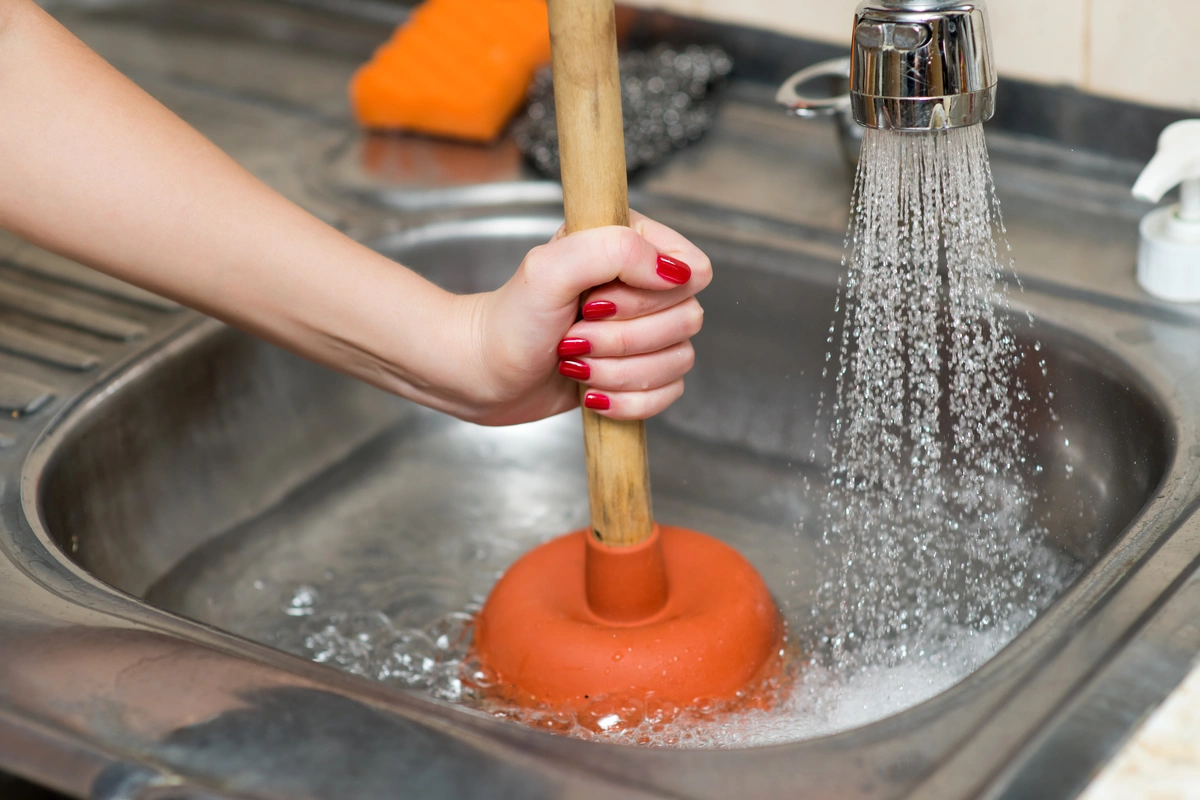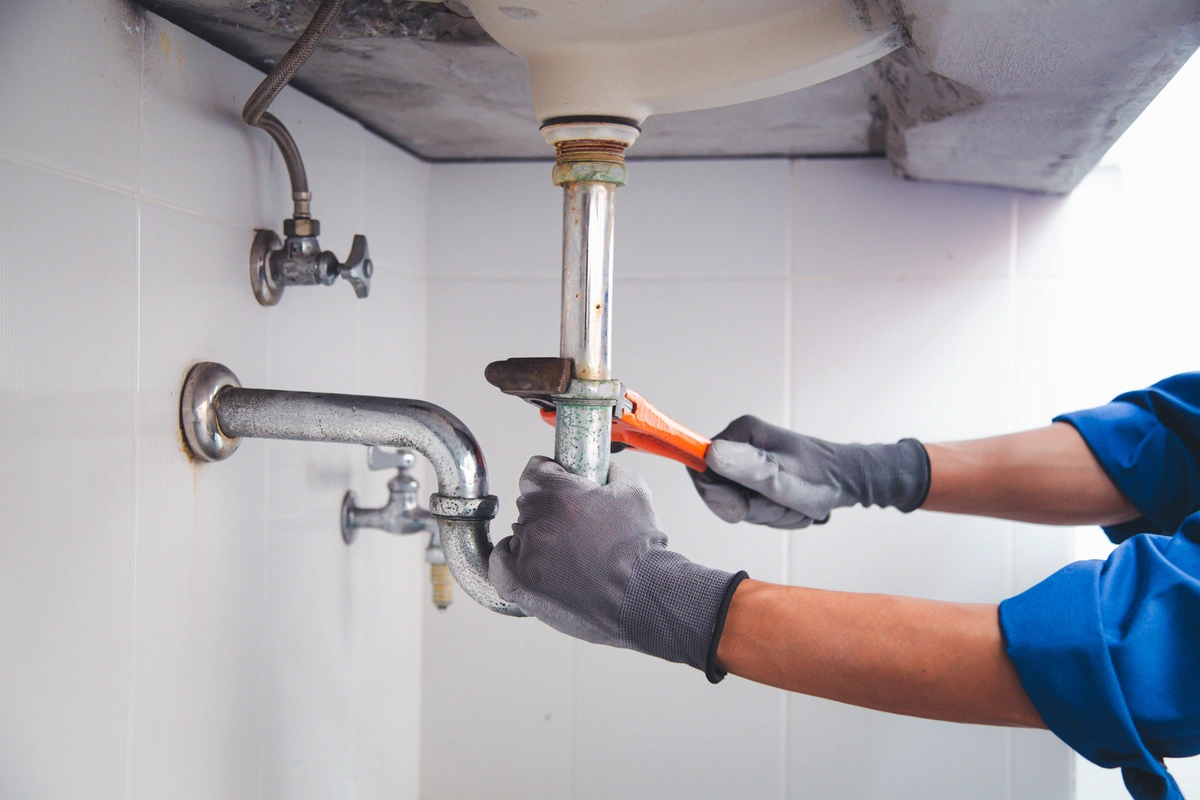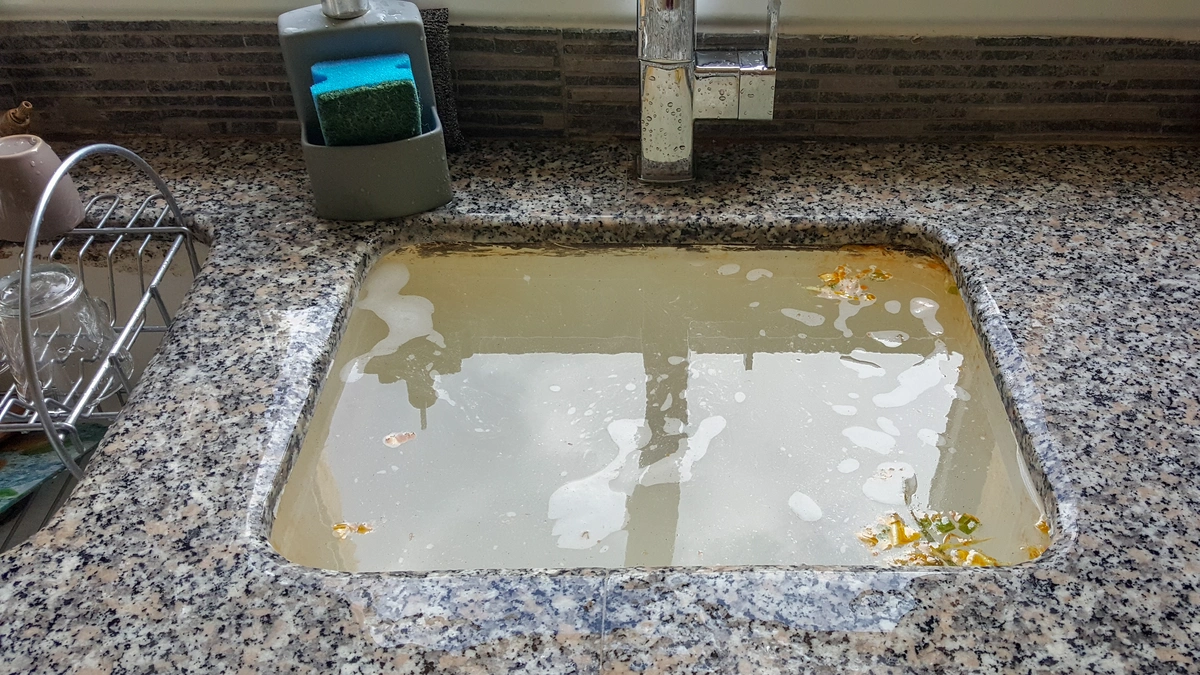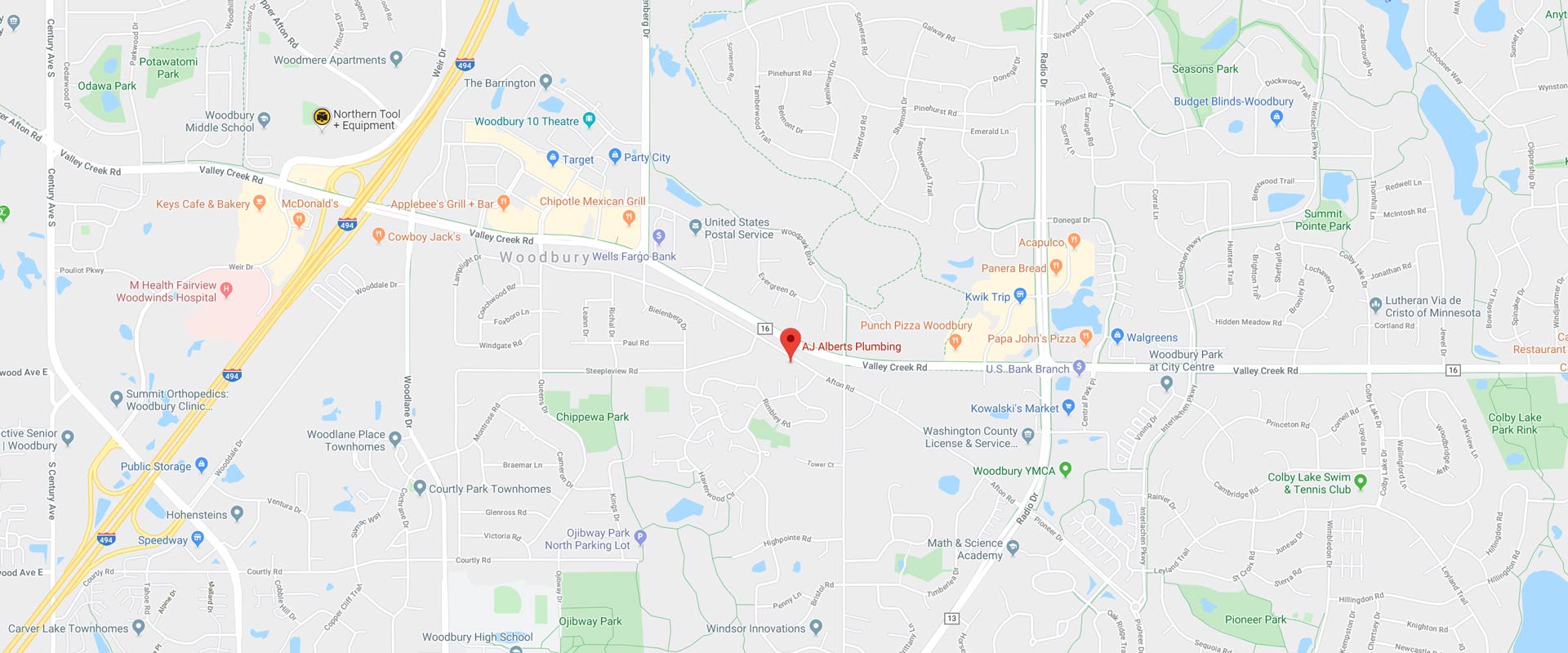Ah, the unpleasant odor wafting from your sink drain – it’s a situation no one wants to deal with, yet many homeowners have faced this stinky dilemma. The frustration and discomfort it brings can disrupt the serenity of your home. But fear not, because in this comprehensive guide, we’ll delve into the five common reasons behind a smelly sink drain and what you can do to eliminate the odor once and for all. Say goodbye to those foul scents that seem to linger, and welcome the refreshing aroma of cleanliness back into your kitchen or bathroom!
By understanding the root causes of sink drain odors and taking effective measures to combat them, you’ll soon enjoy a fresher and more pleasant living space that you and your family truly deserve. So, let’s roll up our sleeves and embark on this journey to banish those unwelcome odors and restore harmony to your home.
Inside this blog:
- The common culprits of clogged sink drains
- 4 basic sink drain cleaning tools
- Tips + tricks for preventing clogged sink drains in your home
Keep reading to discover everything you need to know about why your sink drains stink and how to get them smelling fresh again!
The 5 Culprits of Smelly Sink Drains 🦠
Now, let’s identify the reasons behind the odor:
1. Food Residue and Organic Matter
Symptoms: Foul smell from the kitchen sink.
Solution: Pour boiling water down the drain to dissolve grease and organic matter. Follow with a mixture of baking soda and vinegar, then rinse with hot water.
2. Soap Scum and Hair
Symptoms: Unpleasant odor from the bathroom sink.
Solution: Remove the sink stopper and clean it thoroughly. Use a pipe cleaning tool to clear hair and soap buildup from the drain.
3. Stagnant Water
Symptoms: A musty smell from drains that aren’t used frequently.
Solution: Run water through infrequently used drains to prevent water from becoming stagnant. Use a drain cover to block odors from rising.
4. Blocked Vent Pipes
Symptoms: Sewer-like smells from multiple drains.
Solution: Check for blocked vent pipes on your roof or call a professional plumber to inspect and clear them.
5. Biofilm and Bacterial Growth
Symptoms: Persistent, unpleasant odors despite cleaning.
Solution: Use an enzyme-based drain cleaner to break down biofilm and eliminate odor-causing bacteria.
4 Basic Sink Drain Cleaning Tools 🧽
Before you tackle the odor, make sure you have these essential tools on hand:
1. Boiling Water
Boiling water is effective for breaking down grease and flushing away trapped residue, making it an environmentally friendly and cost-effective solution to tackle sink drain odors.
2. Baking Soda and Vinegar
This dynamic duo is excellent for neutralizing odors and cleaning pipes, providing a natural and safe way to maintain your drains while also preventing unpleasant smells.
3. Plunger

A plunger can help dislodge clogs and promote proper drainage, making it a go-to tool for dealing with sink drain issues and odors.
4. Wire Brush or Pipe Cleaning Tool
A wire brush or specialized pipe cleaning tool is useful for scrubbing away buildup, offering a more thorough and effective method for removing stubborn residues that might contribute to foul odors in your sink drains.
Preventive Measures 🚫
Preventing sink drain odors is often easier than dealing with them. Here are some preventive measures:
- Regular Cleaning: Routinely clean your sink drains with baking soda and vinegar to prevent buildup, ensuring that any emerging odors are nipped in the bud.
- Use Drain Strainers: Install drain strainers to catch debris and prevent it from going down the drain, maintaining a clear pathway for water flow and minimizing odor sources.
- Hot Water Flush: Once a week, pour boiling water down your drains to keep them clear and help dislodge any potential odor-causing substances that might be clinging to the pipe walls.
- Stagnant Water Prevention: If you have infrequently used drains, periodically run water through them to prevent stagnant water, which can become a breeding ground for foul-smelling bacteria and mold.
- Avoid Harsh Chemicals: Refrain from using harsh chemical drain cleaners, as they can damage pipes and worsen odors, leading to more significant plumbing issues that may require professional intervention.
When to Call a Professional 📞

If you’ve tried these methods and the odor persists, or if you suspect a more complex issue with your plumbing, it’s time to seek professional help. A licensed plumber can diagnose and resolve underlying problems that may be causing persistent odors.
Likewise, if you experience recurring blockages, multiple affected drains, sewer gas smells, damage, rising water bills, or an aging plumbing system, don’t hesitate to reach out to a professional. Their knowledge and experience will help identify and resolve complex plumbing issues, ensuring your home remains odor-free and your plumbing system operates efficiently.
Ditch the Stinky Sinks
With these insights into the common reasons behind smelly sink drains and effective solutions to combat odors, you’re equipped to restore a fresh and pleasant atmosphere to your kitchen and bathroom. Regular maintenance and preventive measures will help you keep those foul smells at bay, ensuring your sinks remain odor-free. Say goodbye to the stink and hello to a more pleasantly fragrant home!
Contact our plumbing experts at AJ Alberts today and experience top-notch work from reliable plumbers. Let’s make the water in your home safer, cleaner, and tastier!



